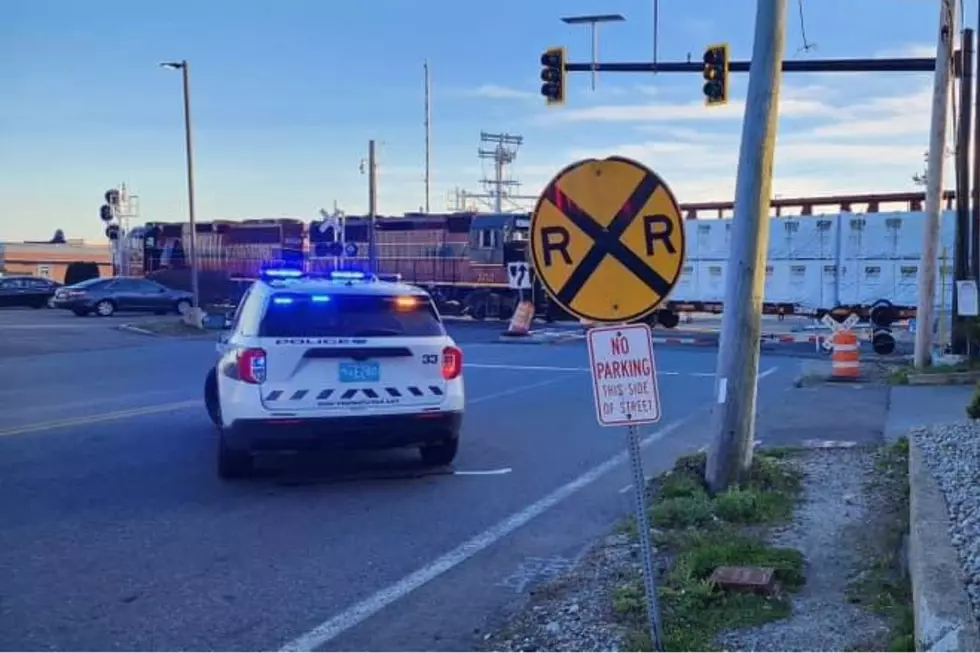
Frustrated Mayors See Education Lawsuit as ‘Last Option’
BOSTON — Officials from Brockton, New Bedford and Worcester and lawyers working with them outlined on Wednesday a potential lawsuit over a state education funding formula they say has led to painful cuts in their districts and left them at a disadvantage compared to wealthier, suburban communities.
Noting steps on Beacon Hill toward overhauling that formula after similar efforts crumbled last year, the mayors and attorneys declined to put a timeline on when they'd need to see legislative action before filing what they described as a "last resort" complaint, or to detail specific provisions that would be required to preclude a lawsuit.
Brockton Mayor Bill Carpenter said gateway cities like his -- midsized, former industrial hubs -- are "now at the breaking point" after years of underfunding. When Brockton had to lay off 80 of roughly 1,400 teachers one summer, superintendent Kathleen Smith tied yellow ribbons around 80 seats in the auditorium to highlight the loss.
"We're here now talking about a lawsuit because we know we cannot do one more year of this without decimating our school systems," Carpenter told reporters at a briefing in downtown Boston. "We've cut everything we can cut. We've closed schools, we've laid off teachers, we've eliminated electives. If you can cut it, we've cut it, and I think to a certain extent we almost feel backed into a corner, that this is our last option, and on behalf of the children that are going to grow up in our cities and attend our schools over the next 12 years, we cannot wait any longer."
The funding formula was established by a 1993 law passed in the wake of a Supreme Judicial Court ruling that the state had failed to meet its constitutional duty to provide an adequate education to all students.
A second lawsuit, initiated in 1999 and decided by the high court in 2005, argued that the state was still failing to meet that obligation. The SJC found the state was fulfilling its duty but inadequacies remained.
"There is essentially a 'Groundhog Day' aspect to this exercise," New Bedford Mayor Jon Mitchell told reporters, saying the cities are making "essentially the same point" almost 15 years later.
"What's different now is, I think the disparities are probably greater, and there has to be some sort of once-and-for-all solution, at least for the foreseeable future," he said.
Statewide, the number of students classified as English language learners has more than doubled since the 1993 to 1994 school year, from 43,690 to 99,866, according to data presented during the event.
Attorneys Jonathan Albano of Morgan Lewis, Patrick Moore of Hemenway and Barnes and Mike Angelini of Bowditch and Dewey joined Mitchell, Carpenter and mayors Joseph Petty of Worcester and Kim Driscoll of Salem for the briefing, held in a conference room provided by the Irish International Immigrant Center.
Mitchell said the legal team has been working with municipal officials pro bono.
Moore said the state's plan to educate public school students "has atrophied to a point of failure," and that adequate resources have not been provided for schools to meet the needs that have been well-documented for years.
The discussion of a potential lawsuit comes as Gov. Charlie Baker and legislative leaders appear to be in agreement over the need to rework the Chapter 70 school funding formula, though a consensus plan has not yet emerged.
Various bills are pending before the Education Committee, and despite the agreement over taking some sort of action, the time frame for doing so remains murky.
Mitchell said he'd heard from lawmakers that they plan to dive into the work after wrapping up the budget for the fiscal year that begins July 1. He said urban officials have been waiting for funding reform since a 2015 state report found the current formula underestimates the cost of education by at least $1 billion per year by inadequately accounting for cost drivers like employee health care, special education, and teaching English language learners and low-income students.
They will "wait patiently" to see what comes out of the legislative process but "can't wait forever," Mitchell said.
Tripp Jones, who was an Education Committee aide during the 1993 reform and is now working with the mayors, said the group is trying to work constructively with lawmakers but wanted to make clear it has the capacity to proceed with a lawsuit if progress isn't made.
Jones said "some more work" would need to be done before a suit would be ready, and that the cities are "counting on the fact that schools are going to open in the fall with this resolved."
Baker's budget proposal, the budget the House passed last month and the Senate Ways and Means spending plan teed up for debate later this month all substantially boost the amount of Chapter 70 aid school districts will receive.
The Massachusetts Teachers Association said the Senate blueprint provides $50 million more in Chapter 70 money than the House, and $68 million more than Baker suggested. MTA President Merrie Najimy called the Senate plan "a good first step" but said the Legislature must "pass a bill that begins implementing all of the Foundation Budget Review Commission's recommendations, addresses other shortcomings of the school funding formula, and guarantees continued increases in the future" to make sure it is not a one-time increase.
A spokeswoman for the Executive Office of Education said Baker's budget and the funding reform bill he filed direct "significant increases to the highest-need communities that educate the most economically disadvantaged students, including communities such as Brockton, New Bedford and Worcester," representing "a historic investment in communities that struggle with persistent achievement gaps."
Attorney General Maura Healey, in a statement responding to the press conference, said many school districts have had to stretch their budgets and the funding formula must be updated to keep pace with costs. "My partners in state government are working hard on this, and my office will do everything we can to support them," she said.
Another group has also floated a potential lawsuit. Last month, a coalition of school committees, civil rights groups and teachers unions called the Council for Fair School Finance published a white paper outlining the "unfilled promises" of the state's education system. Iván Espinoza-Madrigal of Lawyers for Civil Rights said then that the council is "fully prepared to move forward" with litigation if Beacon Hill does not provide "the resources necessary to give every student the high-quality education they are entitled to under our Constitution."
The group Stand for Children Massachusetts issued a statement applauding the Worcester, New Bedford and Brockton officials who voiced their concerns Wednesday. The statement said a potential lawsuit "is not the most timely or effective solution" and urged Baker and lawmakers to "fix the formula and allocate appropriate resources to achieve a solution for fiscal year 2020."
More From WBSM-AM/AM 1420









